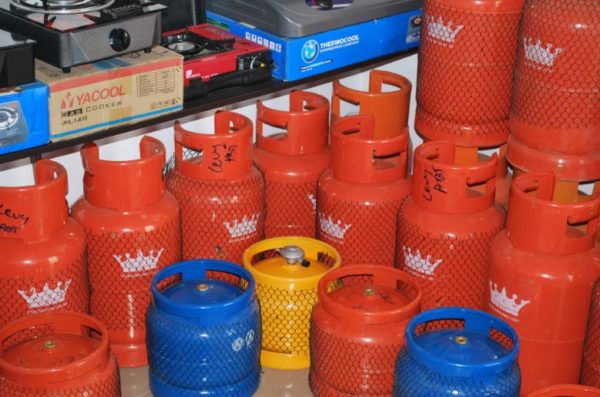Sokoto, May 20, 2023: The Nigerian Export Promotion Council (NEPC) has urged Small and Medium Enterprises (SMEs) and other business owners to access export incentives and encouragement windows provided by government.
Mr Yahaya Ahmad-Sukaraiju, the NEPC Trade Adviser and Head of Sokoto zonal office made call at a sensitisation workshop for SMEs on how to access incentives for export of their goods and services on Saturday in Sokoto.
Ahmad-Sukaraiju described exports Incentives as a catalyst for boosting non-oil export in Nigeria and urged business owners to enlist thier items through the regulated modalities.
He said the activity was aimed at creating awareness for business owners on the incentives in NEPC to enable them to become beneficiaries.
He said that incentives would help in making domestic products competitive in the global market and encourage expansion of businesses.
“We need incentives to encourage expansion of exports, encourage businesses to export certain types of goods and services to facilitate greater market penetration and encourage domestic value-addition.
“ For increased international competition and the demand for foreign markets. Inadequate incentives is a disincentive to export,” he said.
He explained that pre-shipment incentives which was mostly for starters in the export business would help in reducing their financial burden.
He added that the post-shipment, which included mostly of tax or legal provisions, was designed for businesses who are already exporting their products to enable them expand.
The NEPC official said that their incentives schemes, over the years, had helped in cushioning cost and eliminating financial burden on exporters.
He said the result has prompted the organisation to increase its awareness outreaches to educate members of the export community to take advantage of the schemes for their benefits.
According to him, the event was also to create public discourse to generate advocacy for the government and legislature to formulate more policies and laws which guarantees the availability of resources for export incentives.
He expressed appreciation over participants’ efforts of open discussions on business challenges, interactive on business terrains and others which would enable stakeholders consider good solutions and approaches.
In his presentation, Mr Anderson Wilkie, from incentive department of NEPC dwelled on the key functions of NEPC, legal framework and functions stressing that incentives were provided to make Nigerian economy viable.
Wilkie said Nigeria needed to export to earn and business owners progress, increased foreign exchange and facilitate income for national development.
The Resource Person said that a well-articulated export plan was critical in granting incentives to businesses and listed Export Development Fund (EDF) and Export Expansion Grant as incentives being awarded to qualified applicants who must be registered with the council.
He said that opportunities of the EDF were usually advertised for applicants to upload their documents, including their proposals to the council’s portal for processing.
He said that NEPC was conducting several free training across the nation to build the capacity of businesses through value addition for export, saying it would have multiplier effects on the economy of the country.
Wilkie explained that a total of 977 companies were approved for EDF grant for the first batch of the scheme and 205 companies were approved for the second batch which were all companies with longstanding relationship with the council.
According to him, from 2021, 3, 867 businesses applied for EDF and all screened by export enablers before approval of first and second batches.
Speaking on behalf of the participants, Alhaji Aliyu Maitasamu, the chairman National Onion Producers and Marchants Association, thanked NEPC for their efforts in boosting the growth of the non-oil sector and encouraging export.
Maitasamu noted that his members constrains remained non acceptability of traded money in denominations of African countries, where they faced difficulties in repatriating trade in spite of Central Bank of Nigeria (CBN) platforms.
He said the bank launched Pan African Payment Settling System, however, failed to satisfy dealers needs in term of repatriating sells monies back to Nigeria.
Alhaji Sani Hamidu, the Director Commerce in Sokoto state Ministry of Commerce recalled that join multilateral centre of onion exports chain was established in past and emphasized the need to revive the committee work and activities.
He assured that ministry of commerce will partner with NEPC and other relevant agencies to strengthen efforts in order to achieve maximum success.
The participants highlighted inconsistency in government policies, poor state governments supports and dwindling economic activities as challenges to prospects of their businesses.














